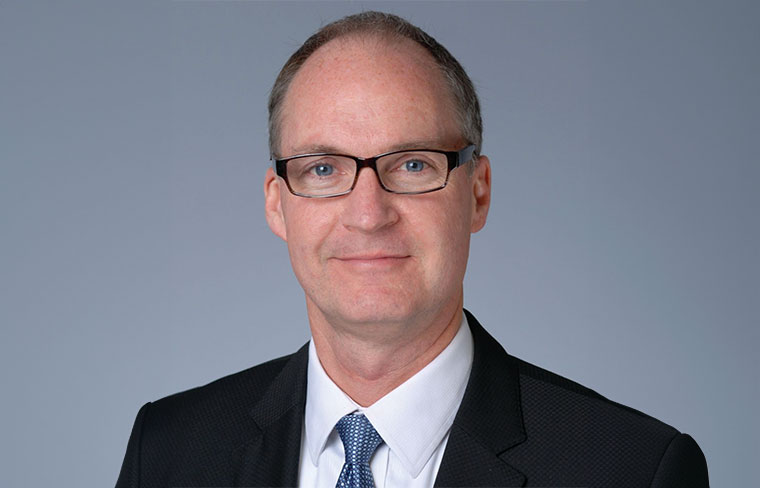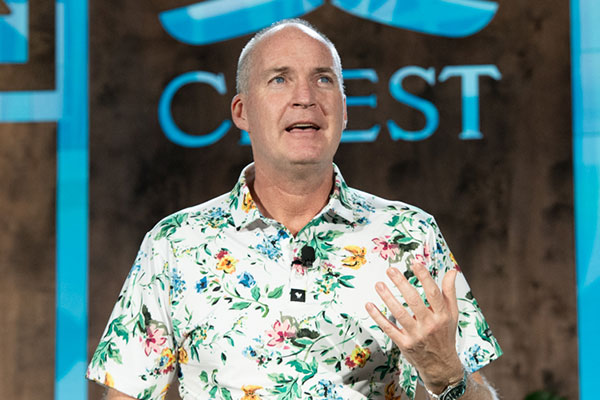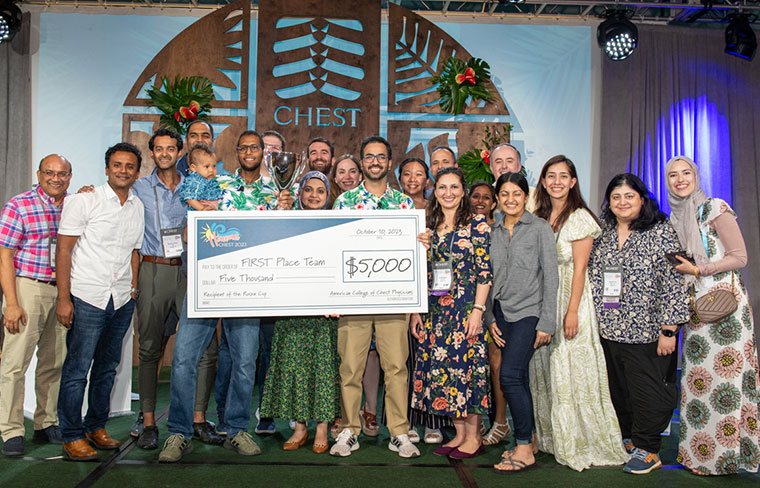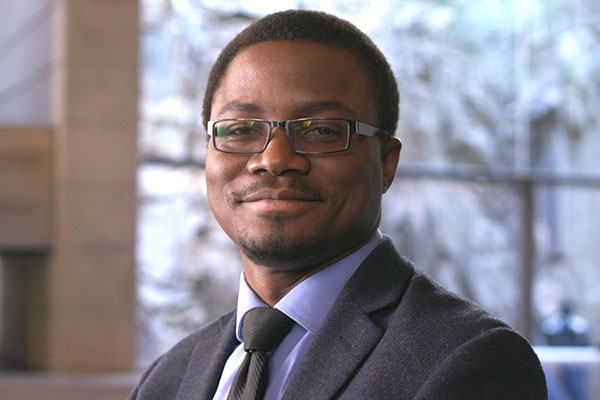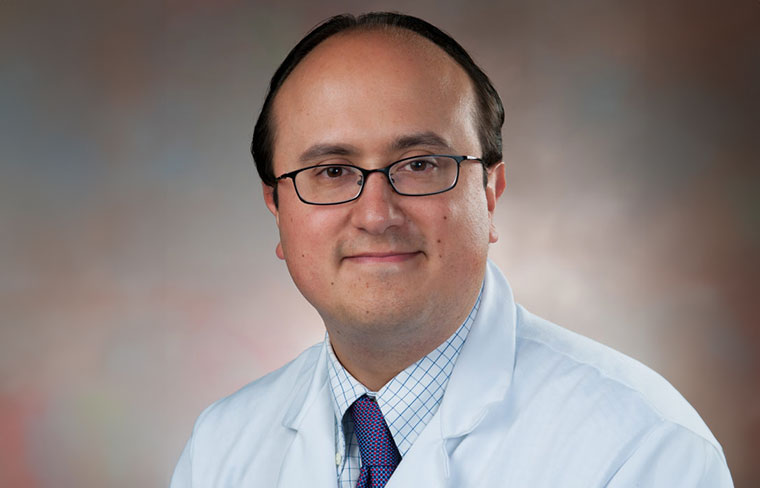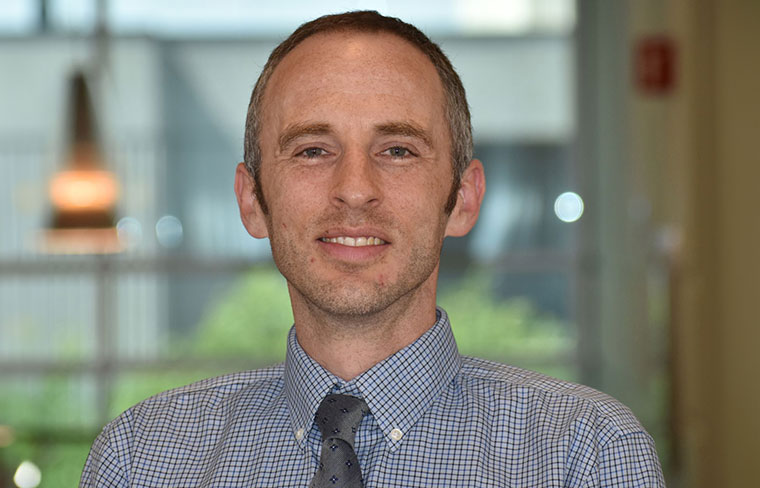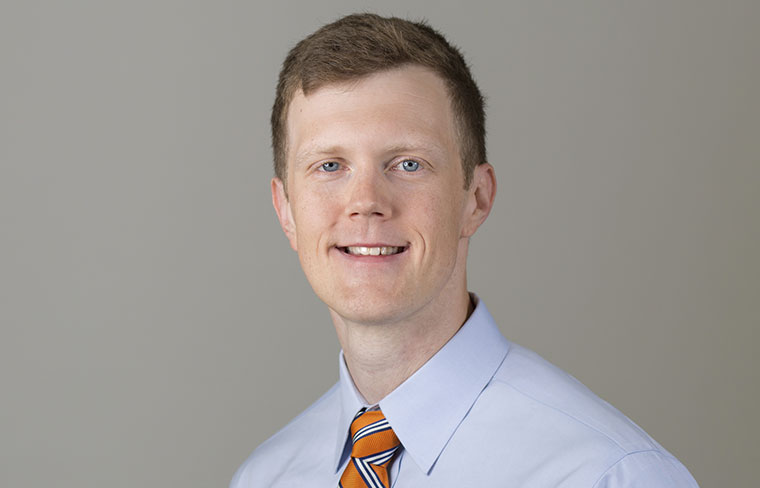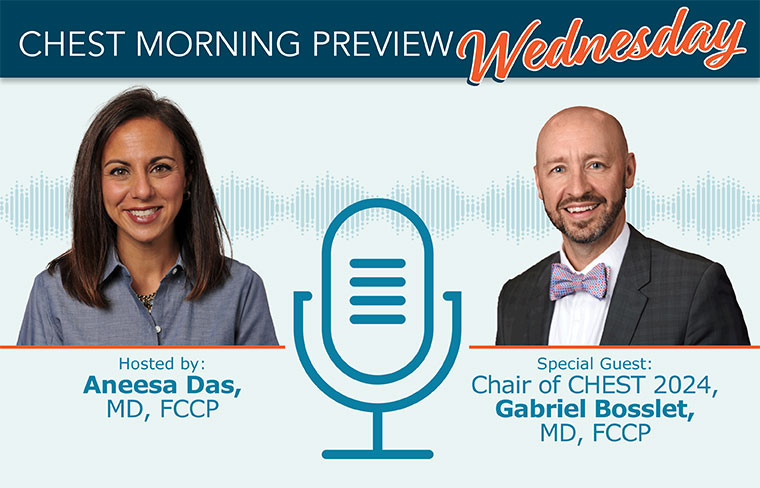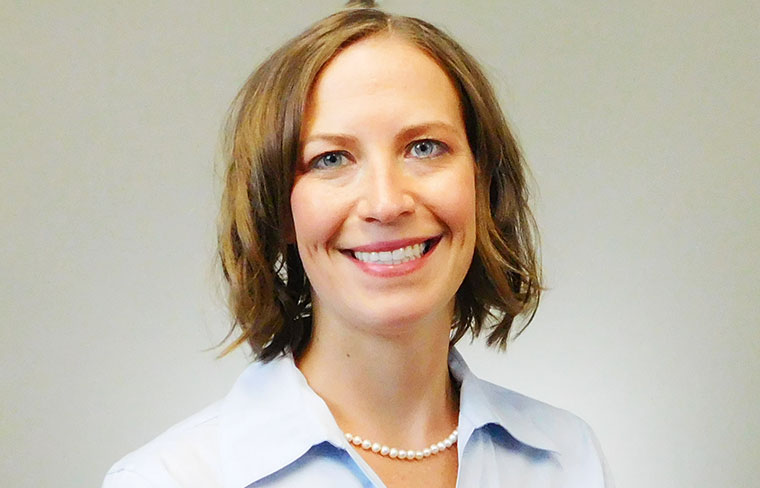
-
CHEST 2024 brings cutting-edge science, education to historic city of Boston
Read More: CHEST 2024 brings cutting-edge science, education to historic city of BostonThis year’s CHEST Annual Meeting will provide insight into artificial intelligence in medicine, the health impact of climate change, the vaping epidemic, and more, said CHEST President, Jack D. Buckley, MD, MPH, FCCP.
-
CHEST never gets old: Attendees look forward to returning to annual meeting year after year
Read More: CHEST never gets old: Attendees look forward to returning to annual meeting year after yearLongtime CHEST Annual Meeting attendees like Erika D. Lease, MD, FCCP, never tire of connecting with colleagues in person and sharing in the latest scientific and clinical updates.
-
Enhance your learning experience with pre-meeting courses
Read More: Enhance your learning experience with pre-meeting coursesRobust educational opportunities prior to the annual meeting will help clinicians of all experience levels review foundational knowledge and keep up with changes in the field, said CHEST Education Committee Chair, Hans Lee, MD, MEHP, FCCP.
-
Incoming president advocates for mentorship to help diversify pulmonary and critical care medicine
Read More: Incoming president advocates for mentorship to help diversify pulmonary and critical care medicineCHEST President-Elect, John “Jack” D. Buckley, MD, MPH, FCCP, emphasized the importance of mentoring in helping the organization and its clinicians better reflect the diversity of their patients and society.
-
UTHealth Houston wins CHEST Challenge XXII in Hawaiʻi
Read More: UTHealth Houston wins CHEST Challenge XXII in HawaiʻiFellows from the University of Oklahoma, the University of Southern California, and the University of Texas Health Science Center at Houston competed in creative clinical trivia and live challenges.
-
Recent discoveries continue to advance understanding of pulmonary fibrosis
Read More: Recent discoveries continue to advance understanding of pulmonary fibrosisDeji Adegunsoye, MD, PhD, FCCP, reviewed the role of genetic testing in pulmonary fibrosis in the past, present, and future management of the disease.
-
Presenters highlight emerging data on use of biologics in asthma, COPD
Read More: Presenters highlight emerging data on use of biologics in asthma, COPDDiego J. Maselli, MD, FCCP, and other experts provided updates on biologics approved in asthma and in trials for COPD.
-
Save the date for CHEST 2024 in Boston
Read More: Save the date for CHEST 2024 in BostonBefore leaving Honolulu, make plans with your colleagues to reconvene for CHEST 2024, October 6-9, in Boston, MA.
-
Panel to address latest questions in pulmonary function test interpretation
Read More: Panel to address latest questions in pulmonary function test interpretationA Wednesday morning session, chaired by Thomas DeCato, MD, FCCP, will help clinicians navigate the current guidance for pulmonary function tests, address controversial issues, and answer unresolved questions from their daily practice.
-
Presenters to share guidance on evaluation of interstitial lung abnormalities
Read More: Presenters to share guidance on evaluation of interstitial lung abnormalitiesA Wednesday morning panel discussion, chaired by Sean Callahan, MD, will help attendees distinguish incidental interstitial lung abnormalities from more consequential findings such as interstitial lung disease.
-
Make the most of Wednesday at CHEST 2023
Read More: Make the most of Wednesday at CHEST 2023Listen now for a preview of the day from Chair of the Scientific Program Committee, Aneesa Das, MD, FCCP, and her guest, Chair of CHEST 2024, Gabriel T. Bosslet, MD, FCCP.
-
Panel to evaluate the use of predictive data modeling in sepsis
Read More: Panel to evaluate the use of predictive data modeling in sepsisA Wednesday morning discussion session co-chaired by Kathryn Pendleton, MD, FCCP, will look at the current problems and opportunities with the use of artificial intelligence to identify patients with sepsis or predict the onset of sepsis.





